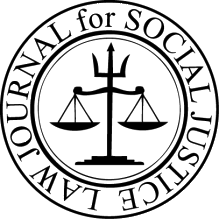By: Brittany Habbart
On February 28, the U.S. Supreme Court announced they will hear Brackeen v. Haaland, a lawsuit challenging the Indian Child Welfare Act (ICWA).[1] ICWA is an important piece of legislation that protects American Indian and Alaska Native children from being separated from their family and culture.[2] The Brackeens, the white adoptive parents of a Diné child in Texas, are claiming that ICWA is unconstitutional because they face reverse racism.[3]
Native status is a political designation (see Morton v. Mancari), but the Brackeens continue to push that Native is a race.[4] They also choose to ignore the actual process of ICWA where adoption preference is first to any extended family member (regardless of race or political designation), second to a foster home licensed by the child’s tribal nation, third to any Native foster home approved by the state, and fourth to an institution for children approved by the tribal nation.[5] To add insult to injury, many of the families fighting against ICWA disregard Indigenous culture and the importance of children growing up with their culture.[6]
What also has people reeling is how the law firm Gibson Dunn is trying to overturn ICWA and is doing so pro-bono.[7] Gibson Dunn is a law firm that has fought tribal nations in both casino cases and cases that further the interests of their Big Oil company clients.[8] The firm has represented Walmart, Amazon, Chevron, and Shell and is a former employer of the far-right Arkansas Senator Tom Cotton.[9] Further, Gibson Dunn represents Energy Transfer, the pipeline company behind the Dakota Access Pipeline (DAPL) that indigenous people have protested against at Standing Rock.[10] It is estimated that indigenous resistance against DAPL cost the pipeline company upwards of $7.5 billion.[11] Indigenous resistance worried the oil industry and only seven months after the indigenous camps in North Dakota were shut down, Gibson Dunn filed the Brackeens’ case in federal court, pro bono.[12]
The usual pro bono cases at Gibson Dunn include working with Afghan refugees, supporters of reproductive rights, social justice initiatives, etc.[13] But the firm has taken this case to fight against a law protecting vulnerable Native American communities who have faced genocide from previous adoption policies.[14] Gibson Dunn’s firm spokeswoman, Pearl Piatt, was asked about Gibson Dunn taking on such a controversial case.[15] She said that “Gibson Dunn’s pro bono program is incredibly diverse, reflecting the diversity of our attorneys. We support our attorneys’ efforts to raise significant constitutional issues of national importance on behalf of our clients.”[16] But which clients are they really funding this case on behalf of and “[a]re they really interested in the welfare of Native children?”[17]
Matthew McGill, a lawyer at Gibson Dunn, is representing the Brackeens in this case pro bono.[18] Paul Clement, an attorney who charges $1,000 per hour and regularly attacks existing Indian law (including his work to disestablish the Mashpee Tribe’s reservation in 2020), will be helping McGill pro bono.[19] McGill has tried to say that “[t]his case is about the well-being of that three-year-old little girl, not abstract notions of tribal sovereignty.”[20] However, many individuals and groups do not believe that.
Steven Donzinger, a lawyer that won a $9.5B judgment against Chevron in Ecuador, stated on his Instagram, “The same @Chevron lawyers who jailed me and demonized Amazon Indigenous peoples in Ecuador are now using an adoption case to help Big Oil undermine tribal sovereignty in the U.S.”[21]
Bloomberg Law columnist Vivia Chen writes that “we can’t discount the possibility that there’s a conservative agenda or at least a conservative strain at play” and is undecided on whether this case is about child wellbeing or a play to erode Native American interests.[22]
The Native American Rights Fund (NARF) states that “opponents [to ICWA] aim to simultaneously exploit Native children and undermine tribal rights.”[23]
The issue is that not only would overturning ICWA hurt Native children, it would also impact mineral rights and tribal self-determination.[24] Attorneys who work for Big Oil and other industries have chosen to fight ICWA as a measure to destroy tribal sovereignty so they can make a tribal land and natural resources grab.[25] Tribal nations hold 2% of all land but their total value of tribal fossil fuel resources is around $1.5 trillion.[26] So while this case may seem like it’s about the well-being of Native children, the children “have become pawns in a colonial chess game.”[27]
We need to protect Native children. Before ICWA, 1 in 4 Native children were removed (willingly or unwillingly) and adopted into non-Native homes.[28] Today, Native children are still four times more likely to be removed from their families than white children are from theirs.[29] A 2020 study found that some states have surpassed the rates of Native family separation prior to ICWA.[30] “This is mostly due to states ignoring or flouting ICWA requirements.”[31] If ICWA is overturned, state statutes can protect Native children.[32] However, only nine states have laws that protect Indigenous children and Arizona is not one of them.[33] Native and non-Native people alike need to think ahead and prepare ways to protect Native children if there is an adverse outcome by the Supreme Court.
Brittany Habbart is a current 2L at Arizona State University’s Sandra Day O’Connor College of Law. She is an enrolled member of the Caddo Nation of Oklahoma. Within the topic of social justice, she has a strong interest in: American Indian law, disability law, LGBTQIA+, and education. Her personal interests include playing with her dog, Tango, and starting the Caddo Language Association, a Native American language non-profit.
